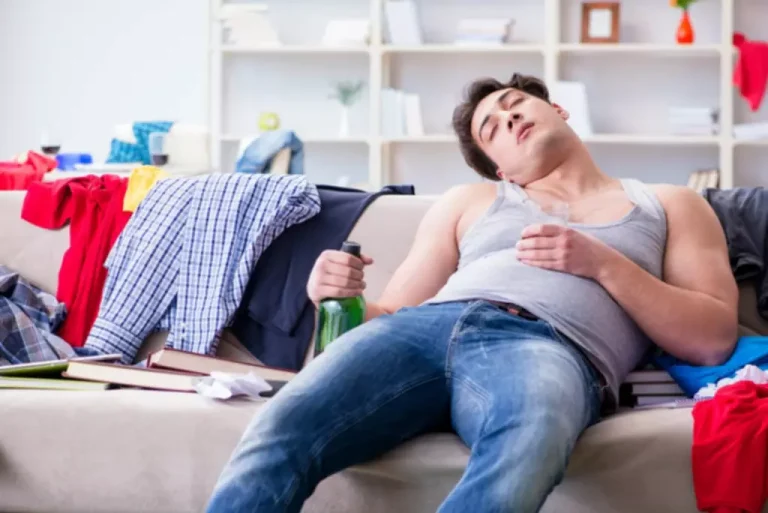
Fourth, a slower onset and subtler development of this syndrome than that from meprobamate or barbiturates….If large doses of chlordiazepoxide are used, the drug should not be abruptly discontinued. When you are physically dependent on a drug, it means your body can’t operate normally without it. If you stop or reduce your dose suddenly, you will experience withdrawal symptoms. From 1996 to 2013, the number of people filling benzodiazepine prescriptions increased by 67%. Benzodiazepine abuse and dependence has become more significant among all age groups, from teens to elderly adults. In 2016, estimates suggest that about half a million people in the United States misused sedative drugs.
Short-term symptoms
- This makes ongoing support and therapy essential as patients navigate the recovery journey.
- This study explored how people co-use, including dosages, timings, methods of administration, use of other substances and desired effects sought.
- For example, symptoms of anxiety or insomnia may come back or get worse without the drugs.
Identifying these risk factors aids in pinpointing susceptible individuals and taking early action to prevent the development of heroin dependency. An extensive network of support often encompasses more than just family. It includes friends, fellow members from support groups, as well as medical care providers. These specific withdrawal symptoms may manifest themselves throughout the entire duration of the withdrawal period. These symptoms can be quite disruptive and may require medical intervention or support for those with seizure disorders.
Spread of participants across patterns in relation to prescribed OAT/benzodiazepines and risk of overdose
People with a history of alcohol dependence or abuse should not use lorazepam unless recommended by their doctor. Lorazepam may also be used for short-term anxiety related to a medical procedure, she said, such as when people experience panic symptoms in the confined space of an MRI machine. Victoria L. Leigh, DO, FACOI, an internal medicine specialist with Providence St. Joseph Hospital in Orange, CA, said in certain cases, benzodiazepines may be used first, such as with anxiety experienced by cancer patients and hospice or palliative care patients. According to the Government of Western Australia Department of Health, benzo withdrawal symptoms can last for weeks or months. According to Mind, symptoms of benzo withdrawal can begin a few hours after you stop taking them. For long-acting benzos, symptoms can begin up to 3 weeks after you stop taking them.
How Benzo Withdrawal Occurs

So, your doctor may recommend a slower taper schedule as a safety precaution. In addition to the immediate health risk, benzodiazepine withdrawal can seriously affect your quality of life. Read on to learn more about benzodiazepine withdrawal, including the benzodiazepine withdrawal signs, how long it lasts, and how to get support with tapering off safely. Although differentiating withdrawal reactions from recrudescent psychiatric symptoms after drug withdrawal is always difficult, a number of factors favored the former interpretation of the newly-appearing symptoms and signs. First, the frequency (10 of 11 patients) of new symptoms or signs soon after withdrawal.
Families Suffer from Alcohol Abuse

Many other resources are available at the For Prescribers and For Patients pages in this website, and all are encouraged to explore this website’s extensive library of articles that are divided by topics. Click here to access the reference library, which provides links to over 1000 benzodiazepine-related scholarly papers. Doctors typically prescribe benzos for short-term relief from conditions such as anxiety. Stopping benzos after taking them for 4 weeks or more is likely to cause withdrawal symptoms.
- The Drug Enforcement Agency (DEA) classify benzodiazepines as a Schedule IV controlled substance.
- If you’re predisposed to seizures, your risk of having a seizure may also increase during the withdrawal period.
- Medical supervision during the detox process is vital for safe management of symptoms and minimizing the risk of severe complications, such as seizures or hallucinations.
- Most are seeking relief from the ongoing symptoms of physiologic dependence.
- With a range of treatment options available, individuals struggling with heroin addiction can find the help they need to reclaim their lives.
- These drugs are habit-forming and can easily result in physical dependence.
Withdrawal symptoms may be mild in people who take the drugs for short periods. However, there is still a possibility of severe reactions and withdrawal symptoms. Research in the British Journal of Clinical Pharmacology notes that an estimated 10–25% of people who use benzos for extended periods experience withdrawal symptoms that last for 12 months or longer. A person’s withdrawal symptoms often depend on the half-life of the drug. Withdrawal symptoms from short-acting drugs, such as Xanax, may come on faster than withdrawal symptoms from long-acting drugs, such as Valium. These factors don’t guarantee you’ll have severe withdrawal symptoms, but they can increase your vulnerability.

Overcoming Opioid Addiction
Individuals withdrawing from benzodiazepines often report experiencing panic attacks, increased tension, excessive worry, and feeling on edge. On Sober living home the physical front, withdrawal can bring about sleep disturbance, sweating, trembling, heart palpitations, headaches, and muscular pain among others. The detox itself will happen with high levels of medical support and round-the-clock monitoring to ensure safety and comfort.
Cravings and Triggers: Strategies for Staying Strong During Cocaine Detox
- There are several good references for methods to come off of benzodiazepines.
- People with benzodiazepine tolerance may take supratherapeutic doses because the recommended range no longer provides relief for their symptoms.
- Detoxification from benzodiazepines carries significant risks, primarily due to the potential for life-threatening withdrawal symptoms.
- Figure 1 and the quote below gives an example co-use timeline for this pattern, reported by participant 31 (female, Glasgow).
- Research showed that 40% of people taking benzos for longer than 6 months experienced moderate-to-severe withdrawal symptoms.
- Benzodiazepines are among the most commonly prescribed medications in the United States.
We would like to thank the research participants for sharing their experiences with us and the services and staff that worked with us in Bristol, Teesside and Glasgow. We would also like to thank the peer co-researchers, Joanna Green, Chris Shilvock, Jade Ritchie, Louise Aitken, Nick Booth and Peter Da Silva. Thanks also to the expert stakeholders who have acted as critical friends, reviewed the findings and giving their feedback on the relevance for future policy and practice.

Each review is verified for relevance and screened for inappropriate content. You may also benefit from talking with a family member or close friend. Support can come in many forms, ranging from virtual communities in online forums to the close-knit care of family and friends. Each type of support network offers its own brand of aid for those undergoing the challenges of withdrawal. Exposure to outdoor daylight early in the day can help re-establish circadian rhythms, managing sleep disturbances during withdrawal.

